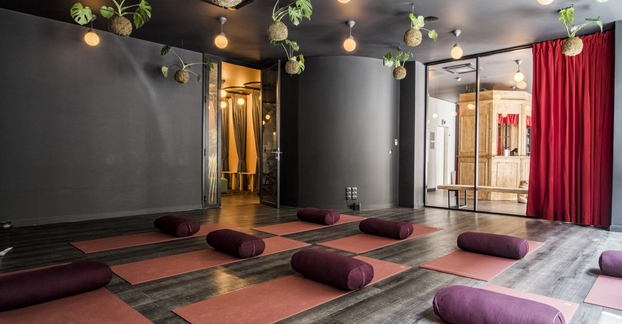
The Importance of Wellbeing and Mindfulness
Providing a healthy work-life balance for your staff is essential, mindful programs and well thought-out spaces make for healthier, happier employees.
We began this New Year with a presentation of our top 8 workplace trends for 2018. Now we’re exploring each of these trends in a series of blogs. Following last week’s blog on upskilling, we’re now having an in-depth look at the importance of wellbeing and mindfulness.
1. What is Mindfulness?
Mindfulness is a calm, accepting state of mind that can be reached by focusing on the present moment and on one’s body and surroundings. It’s about “being” as opposed to “doing”. The goal is to clear one’s mind of worries. By becoming mindful of our feelings, and patterns of behaviour, we’ll find ourselves more in control.
Have you heard of the “Headspace” app? Or “Calm”? Do you have a friend or relative that enjoys adult colouring books? Each of these is a form of mindfulness.
In today’s society, wellbeing and personal experience are increasingly valued above money and possessions – hence it’s important to provide a healthy work-life balance for employees. Everybody experiences stress and anxiety sometimes – mindfulness provides us with the tools to cope with those difficult moments and live our best lives.
So how might employees be helped and encouraged to become more mindful?
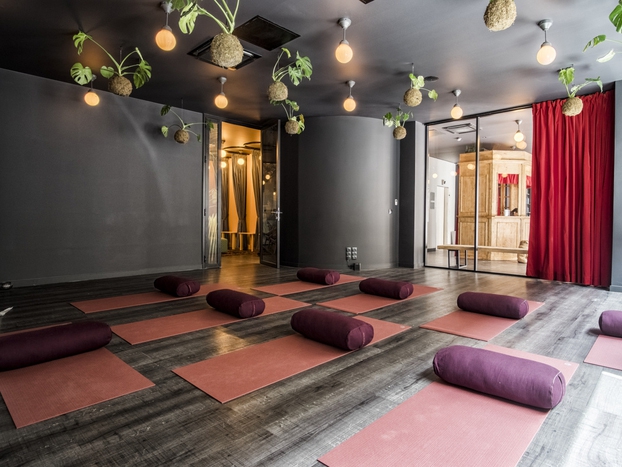
2. Encouraging Mindfulness
It’s very worthwhile to educate employees on what mindfulness is and how they might try it out for themselves – upskilling isn’t just about how you work, it’s also about how you look after yourselves and relax.
Therefore, staff should be provided with opportunities to learn mindfulness meditation, which has been shown to reduce stress and anxiety, and also to boost creativity and concentration. This can be done alone, or in a group setting with an instructor. Forward-thinking, holistic companies often offer classes in meditation and subscriptions to personal mindfulness apps – such as the world’s leading mindfulness app, Headspace, whose Californian headquarters we’ve worked on here at Spacestor.
Other beneficial activities include:
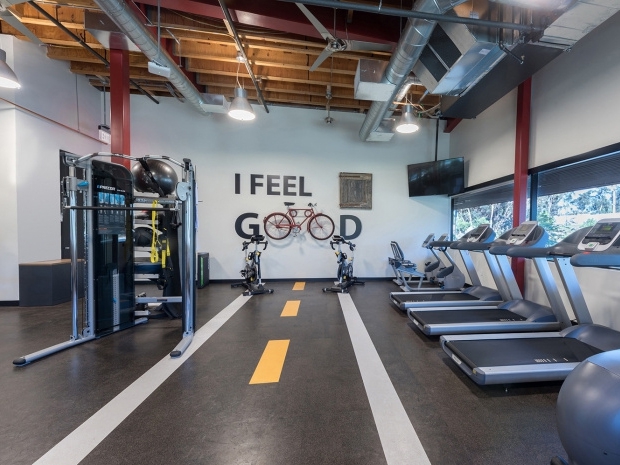
3. Building towards Wellbeing
Well-designed offices should include a variety of quiet, contained spaces for thinking and relaxation; spaces in which mindfulness can easily be practised. For instance, Headspace’s Santa Monica headquarters feature our calming Railway Carriages meeting pods – which are perfect for taking some time out to clear one’s head.
It’s also a great idea to provide canteens that encourage healthy eating, as this provides a huge boost to general wellbeing
If one wants to go further, one can look to have one’s workplace certified according to Delos’s new WELL Building Standard; the result of seven years of research with doctors, scientists, architects and wellness experts. In the words of Delos, the Standard “marries best practice in design and construction with evidence-based medical and scientific research – harnessing the built environment as a vehicle to support human health and wellbeing.” In order to become certified, buildings must meet certain standards in seven key areas – air, water, nourishment, light, fitness, comfort and mind – all of which have a significant effect on those working inside of them.
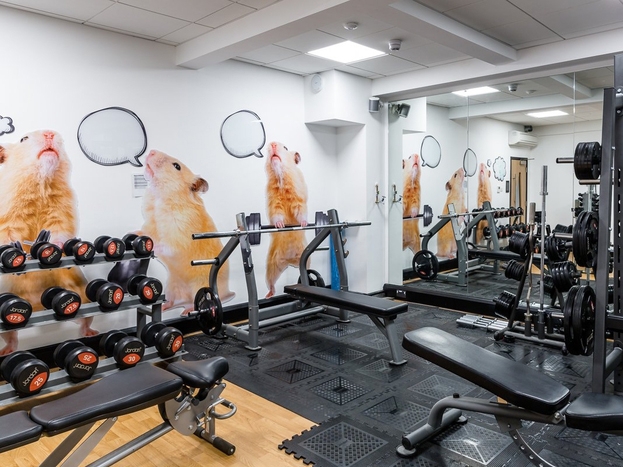
4. A Healthier, Happier Workforce
Prioritising wellness is a good investment in one’s company. For example, healthcare insurance company Aetna recently began offering mindfulness programs to its staff and estimates that it’s subsequently saved $2,000 in healthcare costs and gained $3,000-worth of productivity from each employee – and rising. But it’s not just about saving money. Another recent study found that employees engaging in mindfulness programs were more hopeful, had higher levels of satisfaction, suffered less anxiety, and were much better able to concentrate at work.
As such, it’s essential to provide a healthy work-life balance for your staff. Mindful programs, and well thought-out spaces, make for healthier, happier employees – and healthier, happier employees make for robust, booming businesses.
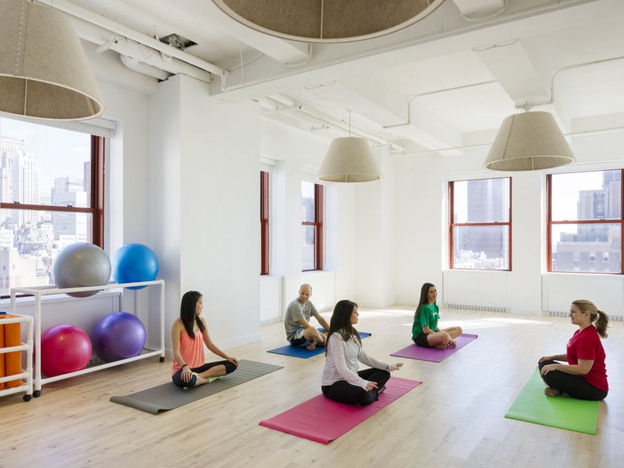




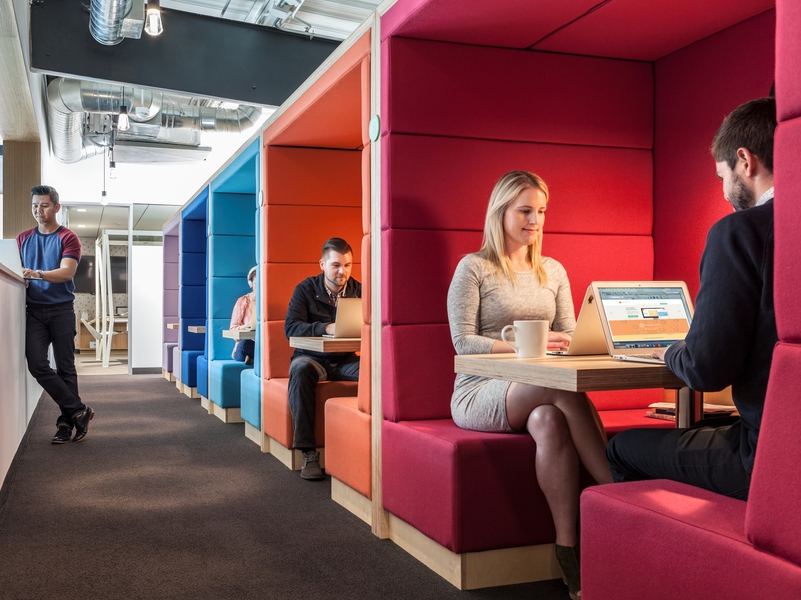
Le nouveau siège social du fournisseur canadien d'application de méditation Headspace, conçu par Kelly Robinson, présen…
TECHNOLOGIE & INFORMATIQUE
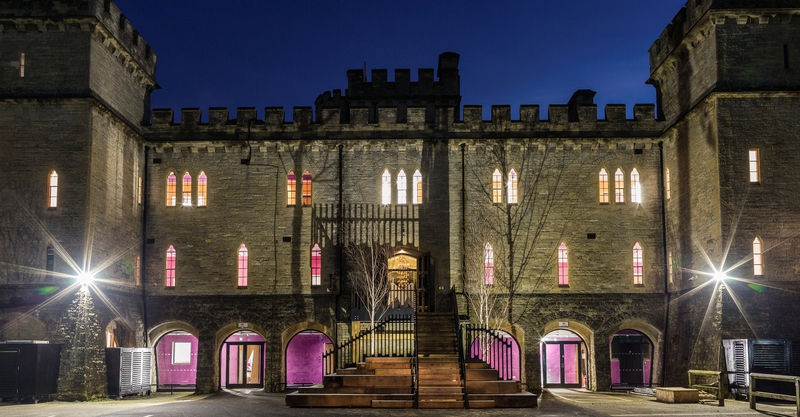
Le comparateur internet basé dans le Cotswold a créé un château adapté aux Rois at Reines de la Tech, orientant la tran…
SERVICES FINANCIERS
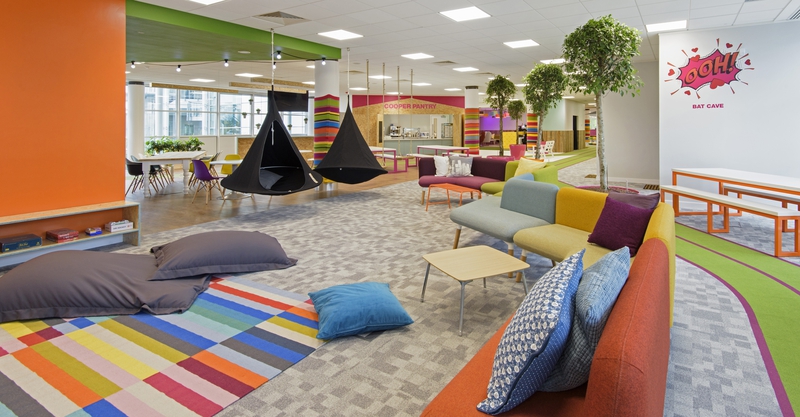
Les contrôleurs de comptabilité PKF Cooper Parry sont en train de changer le visage de leur secteur d'activité. Ce ne s…
SERVICES FINANCIERS
